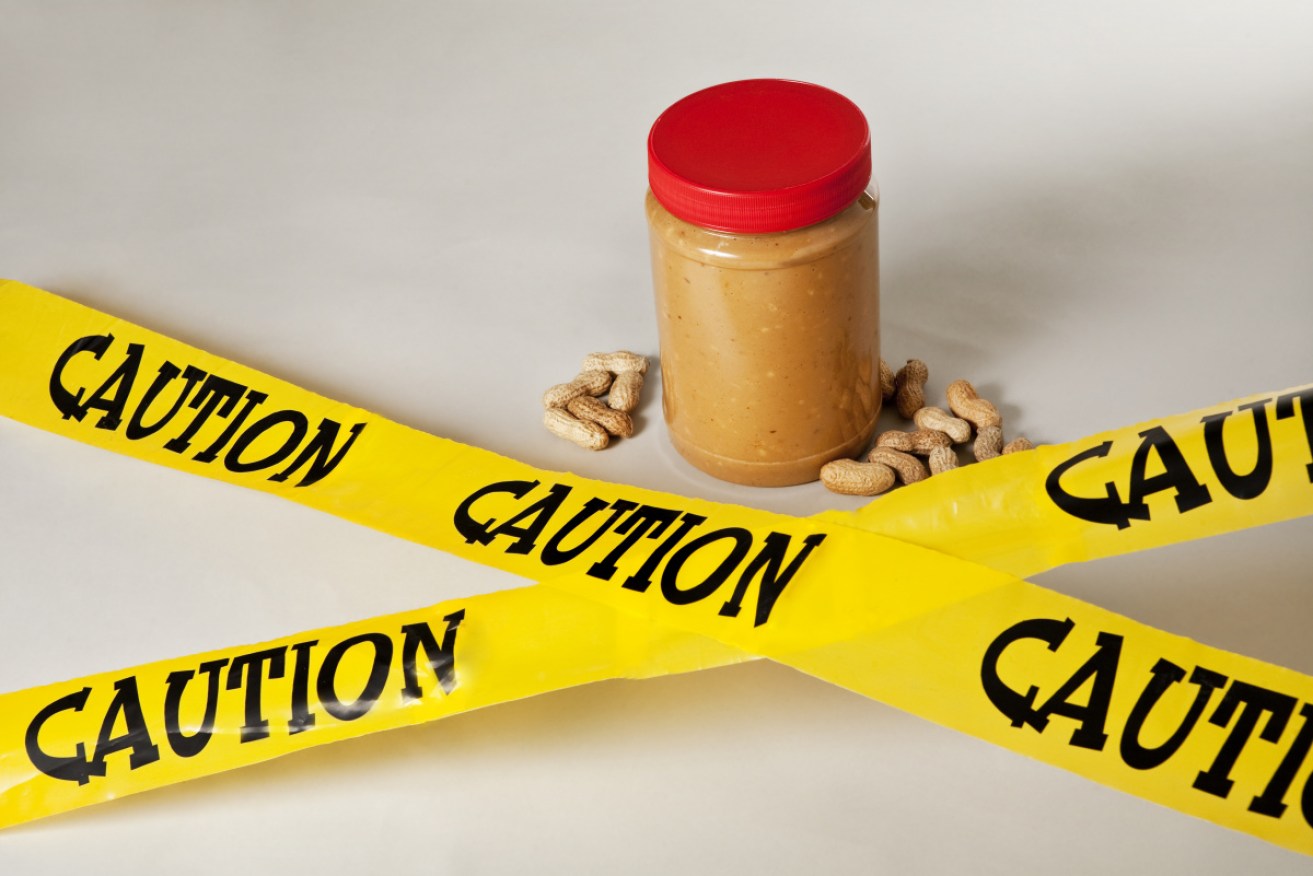‘Life-changing and life-saving’: Experimental pill may prevent anaphylactic shock


Scared you might eat a nut? A cancer drug is showing promise in suppressing the sometimes lethal allergic response. Photo: Getty
We mostly hear about anaphylactic shock in the news media.
What’s happened is this: during a violent allergic reaction, a person’s blood pressure has dropped dangerously low, and their airways closed up such that they couldn’t get enough oxygen to their organs.
While most people survive such a calamity, occasionally someone dies. And that’s when we hear about it. It doesn’t happen a lot, but it happens.
US researchers say that these potentially lethal reactions to food and drug allergens, such as peanut butter and penicillin, could be prevented by taking “a pill” – if experimental work with human cells and animal models is repeated in clinical trials.
Is this just another wonderful experiment with mice?
The research – from the Feinberg School of Medicine at Northwestern University – found that a type of drug called BTK inhibitors are “successful in suppressing allergic reactions” in laboratory conditions.
What this means: the drugs were tested on human cells and modified mice.
But the new study is supported by previous research in the real world, with two small human trials.
In these trials, cancer patients with allergies took the BTK inhibitor ibrutinib as part of their treatment. In both cases, the patient enjoyed a vastly diminished response to allergens.
In the first trial, the patients “were allergic to airborne allergens such as cat dander and ragweed pollen.”
They saw their allergic skin test reactivity reduced by 80 to 90 per cent within one week of receiving the treatment.
The researchers point to a subsequent study, led by Dispenza, that “showed the same thing happened to food allergy skin test reactions when healthy adults with food allergy took the drug for just a few days.”
These were pilot studies, “but the findings were consistent.”
So what are these drugs?
BTK stands for an enzyme called Bruton’s tyrosine kinase, which is found inside cells, including mast cells.
Mast cells release histamine and other substances during inflammatory and allergic reactions.
According to a statement from Northwestern:
“The reason BTK inhibitors work to block allergic reactions is that by inhibiting, or blocking, the BTK enzyme, the mast cells cannot be triggered by allergens and allergic antibody to release histamine and other allergic mediators.”
How did they find this out?
The study used three different BTK inhibitors, which blocked allergic reactions when tested on human mast cells in a test tube.
Additionally, the study used one U.S. Food and Drug Administration-approved oral drug, “which successfully reduced or prevented allergic reactions, including severe, life-threatening anaphylactic reactions, in a new ‘humanized’ mouse model of anaphylaxis.”
What they mean by humanized:
“The mouse’s organs contained transplanted human cells that, over several months, matured into human mast cells, the primary cells that react during allergic reactions.”
Here are the possibilities
Dr. Bruce Bochner is the Samuel M. Feinberg Professor of Medicine at Northwestern. In a prepared statement, he said this would be the first known treatment to prevent anaphylaxis, other than avoiding the allergen.
The findings could pave the way for future human clinical trials of “such oral drugs to be used as a preventive treatment to avoid serious allergic reactions,” said Dr Bochner, the senior and corresponding author of the new study.
This pill could quite literally be life-changing and life-saving,” Dr Bochner said.
“Imagine being able to take medication proactively to prevent a serious allergic reaction.”
Parents of children with allergies had told him they wanted such a pill: “Something while we’re on vacation in case they accidentally eat the wrong food.”
Another possible application for these drugs, said Dr Bochner:
“People who are at high risk of allergic exposures to life-saving antibiotics or people about to undergo oral food desensitization (gradually eating foods to build up a threshold to an allergic reaction) could take the pill as a preventive measure.”
He said that if these drugs turn out to be safe and cheap enough for daily use, “theoretically anyone with a serious allergy, including food allergies, could take it and be able to eat the foods they’ve been strictly avoiding.”
The fact is, they not cheap. BTK inhibitors, according to the researchers, cost $500 a day. And they’re not regulated for use by children.
There are a few hoops to jump through.
Goodbye to EpiPens?
There is certainly need for a new response to anaphylaxis.
Normally, the person in crisis relies on an EpiPen, an auto-injector that delivers epinephrine (also known as adrenaline) into the muscle. Epinephrine is effective, increasing blood pressure and suppresses the immune system.
It’s all good if everything goes to plan and the drug doesn’t end up in the wrong leg or thumb – and if the drug hasn’t sat too long on the bathroom shelf.
A 2019 study, using dummy EpiPens, found that 16 per cent of participants didn’t use them properly. Uncounted users fail to keep the device current and can get caught out when the drug’s efficacy expires.
In March, the US Federal Drug Administration (FDA) released a warning epinephrine auto-injectors EpiPens may malfunction.
A better plan: avoid the emergency.








